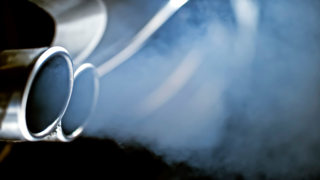A new report from the parliamentary Transport Committee claims the Government should investigate and consider prosecuting Volkswagen for its deception, but it has been far too slow to act.
On the Volkswagen scandal, Chair of the Transport Select Committee, Louise Ellman MP, said: "Volkswagen Group has acted cynically to cheat emissions tests which exist solely to protect human health. Volkswagen's evidence to us was just not credible but the Government has lacked the will to hold VW accountable for its actions. There is a real danger that VW will be able to get away with cheating emissions tests in Europe if regulators do not act.
"Vehicle owners have been refused goodwill payments. That is despite VW inflicting a great deal of uncertainty on its own customers along with the prospect of declining residual values and the inconvenience of having to undergo repairs.
"We are concerned that VW's fix was developed at the lowest possible cost which might lead to increased costs for motorists down the line. We have called upon the Vehicle Certification Agency to do everything in its power to ensure that does not happen."
A Volkswagen spokesman told Fleet News that the remedial work was well underway in the UK, with around one-quarter of the affected Volkswagen-brand vehicles completed, and emphasised the work complied with all regulations.
He said: "Close to 50,000 vehicles in the UK have now received the technical measure, a number which will continue to increase as further vehicles’ technical measures are developed, rigorously tested and then approved by the relevant transport authorities."
The spokesman explained a difference in legislation was the reason behind the lack of a 'goodwill payment' to vehicle owners.
"The implementation of the technical measures will not incur costs for any customer. We emphasised this right from the start and it continues to apply.
"There is no buy-back deal or compensation for drivers outside the US. That is because the relevant facts and complex legal issues that have played a role in coming to these agreements are materially different from those in Europe and other parts of the world.
"Regulations governing nitrogen oxide (NOx) emissions limits for vehicles in the United States are much stricter than those in other parts of the world and the engine variants also differ significantly. This makes the development of technical measures in the United States more challenging than in Europe and other parts of the world, where implementation of an approved program to modify TDI vehicles to comply fully with UN/ECE and European emissions standards has already begun by agreement with the relevant authorities.
"In Europe, Volkswagen has been able to agree with the authorities responsible for the issue of an action plan for the modification of the affected vehicles. The vehicles will fully comply with emission standards. Implementation of these measures has also already begun."
The Committee welcomed the planned introduction of 'real driving emissions tests' and a stricter lab test for measuring fuel consumption. It was disappointed that legal emissions limits were not set lower given the scientific evidence that shows dangerous NOx emissions could be cut much faster.
Commenting on the reforms, the Chair said: "Many of the European type approval reforms will reduce the opportunities that manufacturers have to cheat emissions tests. That is to be welcomed.
"But as vehicle technology becomes more advanced, what is most urgently needed is a robust regulator who can keep ahead of developments in technology. That regulator does not exist today. The VCA must make scrutinising manufacturers for non-compliance and questionable practices its first priority.
"We are concerned that manufacturers have far too great a say over how type approval reforms are implemented. There is strong evidence that vehicle manufacturers have employed a wide range of practices that are, in effect, defeat devices by another name. We have called upon the Department for Transport to be transparent in how it works with manufacturers to prevent both the spirit and the letter of the law from being broken.
"The vehicle testing and certification system is notoriously opaque. That has resulted in the VW emissions scandal. We have commended the Department for Transport on its commitment to spot check vehicles on the market. If that had been done properly in the past the likelihood of the emissions scandal from occurring in Europe would have been significantly reduced.
"We have also called upon the Department to ensure future in-service surveillance is improved by combining it with a commitment to make its results and supporting data publicly available for additional independent scrutiny."
Volkswagen added: "The Volkswagen AG Board of Management takes these issues very seriously and deeply regrets that we have broken the trust of our customers and the general public. We are cooperating openly and fully with the relevant authorities to clarify the facts of the matter quickly and comprehensively. Volkswagen has commissioned an external investigation into the matter which will also address the issue of responsibilities. This investigation has not yet been completed."




















Derek webb - 15/07/2016 12:06
Too slow to act - there's a surprise - this entire episode will make anything Houdini did look pitiful.